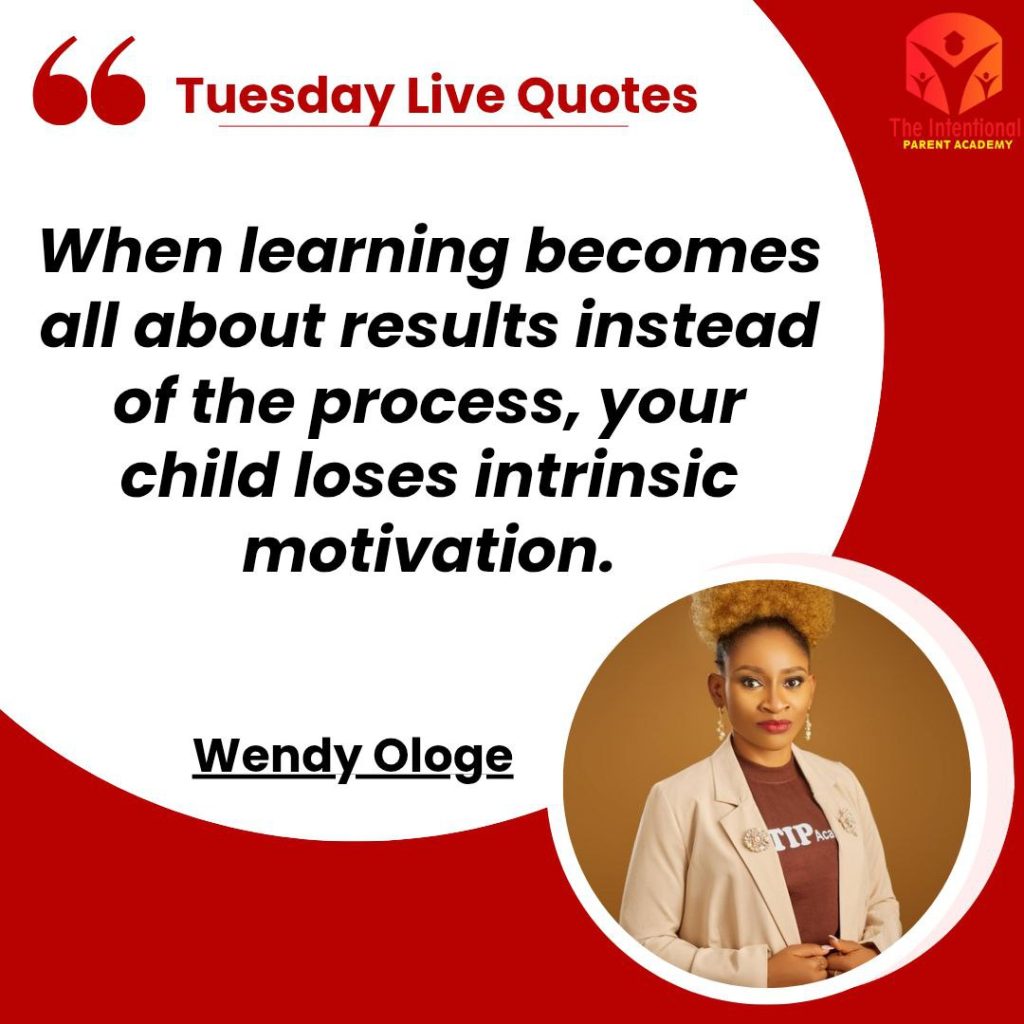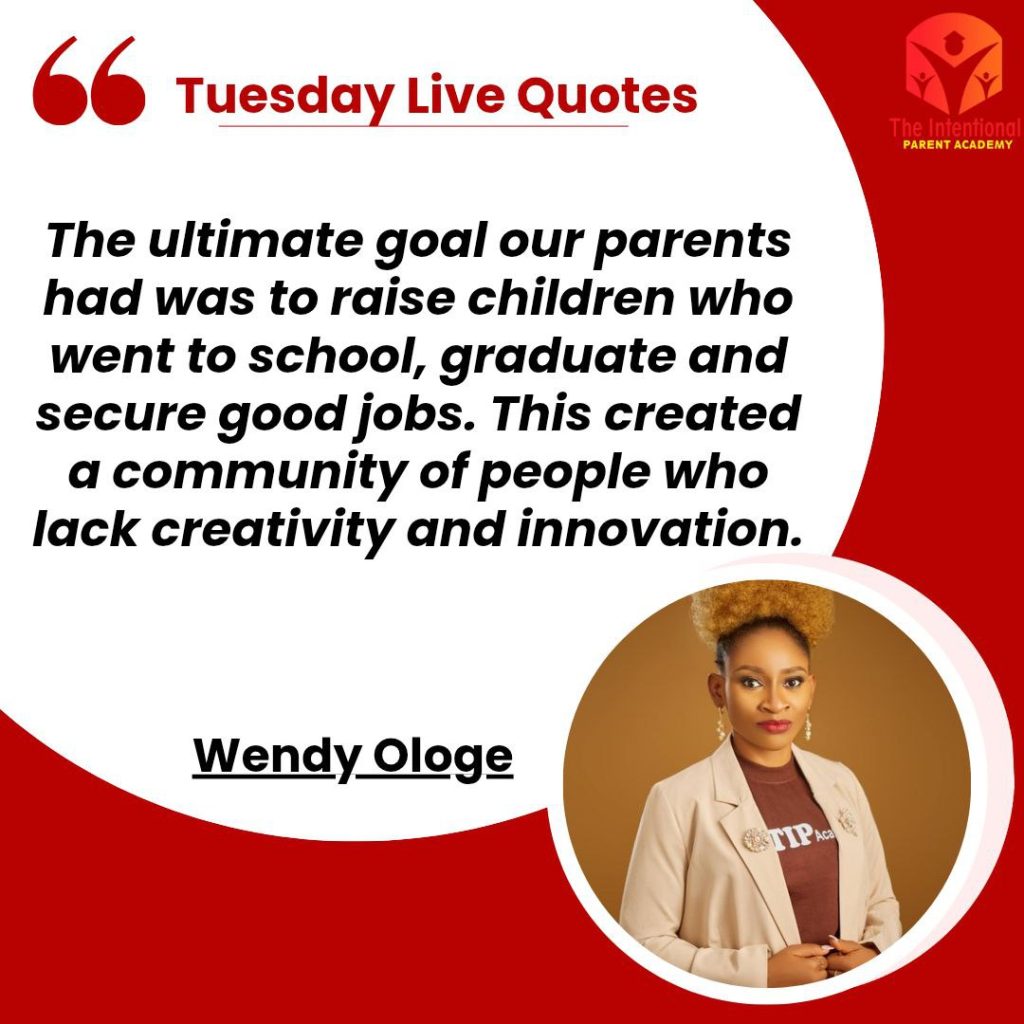How Wrong Parenting Can Make Your Child Hate Learning
“When a child is constantly flogged and shamed to learn, he will begin to associate fear with learning.” – Wendy Ologe.

Every child is born curious, eager to explore and learn. But somewhere along the way, many children begin to dread learning. The joy of discovery fades, replaced by fear, frustration, or apathy. What went wrong?
As parents, we play a significant role in shaping our children’s attitude toward learning. Unfortunately, some parenting approaches—often with good intentions—can make children associate learning with anxiety, pressure, or even resentment. In this post, we’ll explore common parenting mistakes that can turn a child away from learning and how you can foster a love for education instead.

1. Punishing a Child for Poor Academic Performance
One of the biggest mistakes parents make is reacting harshly when their child struggles academically. Whether it’s punishment, withdrawal of privileges, or scolding, these reactions create fear and anxiety around learning.
When children are shamed for making mistakes, they begin to associate learning with fear instead of growth. Mistakes should be seen as steppingstones, not failures. Yet, many parents feel triggered when their child struggles, often because of their own childhood experiences. Recognizing and addressing these triggers can help parents respond with patience instead of frustration.
2. Unrealistic Expectations
Every child learns differently, yet some parents expect their child to be at the top of the class without considering their unique learning style. Not every child is built for the same academic pace and pushing them to meet unrealistic expectations can create frustration and self-doubt.
Instead of focusing on grades alone, parents should understand how their child processes information. Some children thrive in hands-on learning, others prefer auditory explanations, while some need visual aids. When parents fail to recognize this, learning becomes a struggle rather than a journey of discovery.

3. Comparison
“Why can’t you be like your sibling?” “Your cousin got all A’s, why can’t you?”
Comparison is one of the fastest ways to kill a child’s motivation to learn. It breeds insecurity and resentment, making children feel like they will never be good enough. More importantly, parents must realize that they, too, were shaped by a system of comparison and criticism. If you don’t put yourself in a system that refines you, you will repeat the sins of your fathers.
Instead of comparing, celebrate your child’s progress, no matter how small. Learning is a personal journey, not a competition.
4. Overloading a Child with Academic Activities
Many parents believe that extra lessons, additional homework, and packed schedules will give their child an academic edge. However, children do not need to spend every waking moment in academic activities.
Play, rest, and exploration are just as important as structured learning. Overloading a child with lessons can lead to burnout, making them resent learning altogether. A child who enjoys a balanced life will approach education with curiosity rather than exhaustion.

5. Neglecting a Child’s Learning Style
Some children absorb information through stories, others through hands-on activities, and some through visuals. When parents force a child into a rigid learning style that doesn’t fit them, frustration builds.
A child struggling in school may not be “lazy” or “unserious”—they might just need a different approach to learning. Recognizing and adapting to your child’s learning style can transform their academic experience.
6. Not Showing Interest in Their Learning
Many parents leave education entirely to schools, assuming that a good school guarantees a good education. But as a parent, you are responsible for “manning the school gate”—ensuring that what happens in school aligns with your child’s needs.
A school may have a good reputation, but that doesn’t necessarily mean it’s good for your child. Attend school meetings, ask your child about their learning experiences, and engage with their teachers. When children see that their parents care about their education, they feel more motivated to learn.

7. Creating a Fear of Failure
“If mistakes are seen as a disaster instead of learning opportunities, your children will avoid learning altogether.”
When children grow up fearing failure, they become afraid to try. They only take on tasks where they are sure to succeed and avoid challenges that could help them grow. This mindset kills curiosity and innovation.
Encourage your child to embrace mistakes as part of the learning process. Teach them that failure is not the opposite of success but a necessary step toward it.
8. Lack of Emotional Support
Children with learning difficulties such as dyslexia or ADHD need more than just academic help—they need emotional support. Without it, they feel defeated before they even begin.
Instead of labeling a struggling child as “slow” or “lazy,” parents should provide patience, encouragement, and resources to help them learn in a way that suits them.
Additionally, excessive screen time can negatively impact a child’s ability to focus and engage in real-world learning. “The skills your children will need to thrive are on the streets, not on the screen.” Encourage real-life experiences, outdoor play, and hands-on exploration to develop critical life skills.
Conclusion
Parenting plays a crucial role in shaping a child’s love for learning. The goal is not just to raise a child who excels academically but one who enjoys learning and applies knowledge to real life.
If you’ve noticed your child struggling with learning, it may not be their fault—it might be the approach. Understanding how your child learns is the key to helping them thrive.
Wouldn’t it be amazing to give your child the best learning experience tailored to their strengths? If you’re ready to stop the struggles and make learning enjoyable, now is the time to equip yourself with the right knowledge.
Want to discover your child’s unique learning style and how to support them effectively? You don’t have to figure it out alone. There’s a simple, proven approach that can transform your child’s learning journey.
Take the first step today—because a love for learning starts at home.
If you’re ready to move beyond the myth of multitasking and help your child focus, learn more effectively, and thrive, my course Understanding Your Child’s Learning Style is the perfect next step. In this course, you’ll gain insights into how your child learns best and how to create an environment that supports deep, focused learning.

You can still catch a replay! Don’t miss out on the opportunity to transform your child’s learning journey. Register now before it’s too late!
Join now!
Pay ₦15,999 to GTBank: 0509494057 (The Intentional Parent Academy)
Send proof of payment via WhatsApp:
+2349036633600 / +2347036393160 / +2348169725632
Prefer Online Payment? Click Here:
https://theintentionalparentacademy.selar.com/LearningStyle2025
Let’s make learning easier and more enjoyable for your child!
Don’t let multitasking hold them back—register now and discover strategies that will set your child up for success!
Watch the full video below!
Have you registered for the Inner Circle Program 2026?

REGISTER FOR 2026 INNER CIRCLE PROGRAM!
Registration for the 2026 Inner Circle has commenced.
You can book your slot and spread your balance within the year.
Booking fee for single is #10000. ($10)
Complete fee for one parent is #120,000. ($120)
Booking fee for couples is #20,000. ($20)
Complete fee for couples #200,000. ($200)
You can book here:
https://theintentionalparentacademy.selar.co/Innercircle2025BOOKING
Or You can make direct payment to 1310192708 (Zenith Bank). The Intentional Parent Academy, then send a chat to: +2349135714816
International payments can be made through Zelle or PayPal using the email wendyologe@gmail.com
Want to make a one-time payment?
For singles slot pay here
https://theintentionalparentacademy.selar.co/InnercircleRegistrationSinglesComplete
For couples slot:
https://theintentionalparentacademy.selar.co/Innercirclecouplescomplete
Please Note: Fee must be completed before being admitted into the Inner Circle Program which starts on the 1st of December. Don’t forget admission is once a year.

